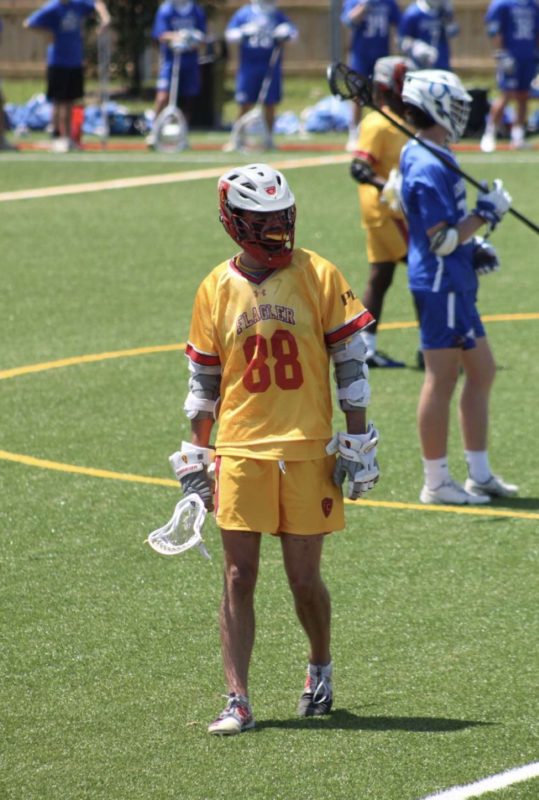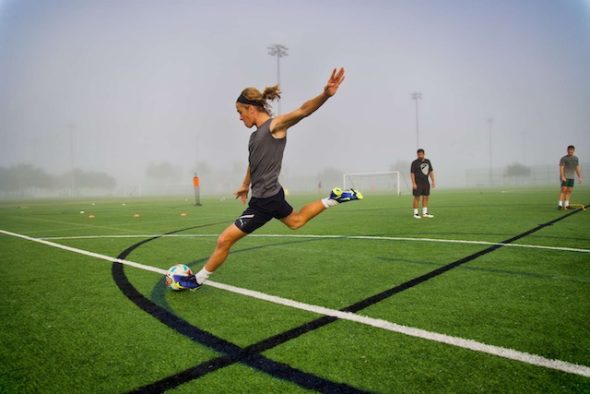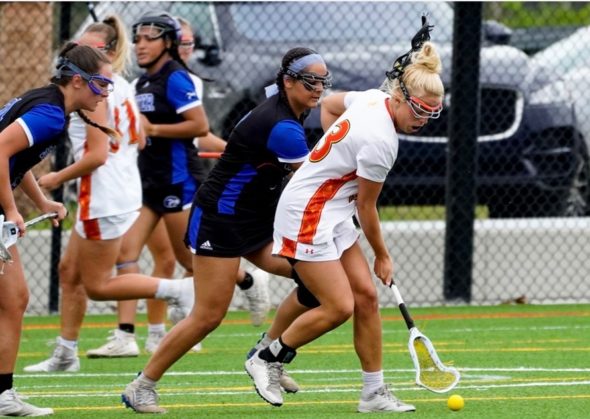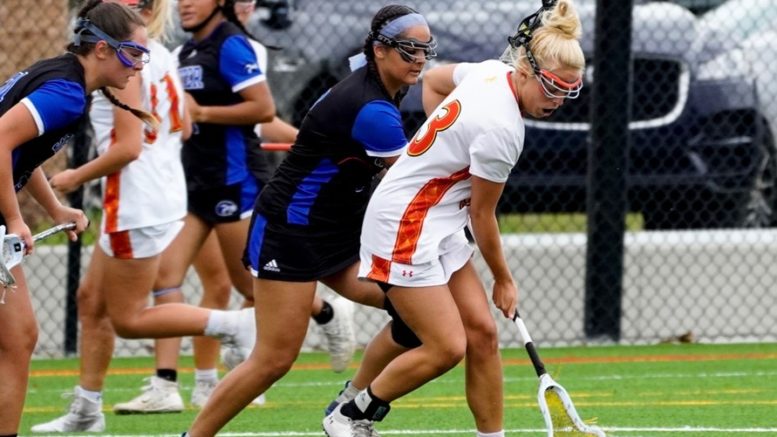By Gabby Alfveby
Class, practice, work and homework; Is there even enough time to eat and sleep?
College student-athletes spend on average six hours on schoolwork, 5.7 hours on athletic events, 3.3 hours on social life and roughly seven hours sleeping, according to the NCAA.
College athletes only have about two hours remaining in a single day for homework, eating and part-time work.
It is estimated that college students spend 12-13 hours a week just on homework according to a survey conducted by the National Survey of Student Engagement. This doesn’t take into account students’ time spent in the classroom.
Students at Flagler college strive to accomplish the highest level of academic success possible and have been successful according to the athletic director.
Jud Damon, the director of athletics at Flagler College since June 2009, is proud of the student-athletes for achieving high grade standards in school even while performing in sports.
“Every year that I’ve been at Flagler, and I don’t know how it was before I got here, but every year since I’ve been here, the student-athlete grade-point average has been higher than the GPA of the overall student body,” Damon said. “We’re really proud of that and I think you know that professors have told us that too and they like having student-athletes in their classes. They’re some of their best students. And it shows up in their GPA. So, they have higher GPAs than the regular student body. They also have a higher graduation rate than the general student body and a higher retention rate.”
Student-athletes have an average GPA of 3.08 while the general student body has an average GPA of 2.97. The retention rate for student-athletes is 82% while the general student body has a retention rate of 69% according to Matt Green, the senior associate athletic director at Flagler College.
Flagler College can’t afford to have academic support services exclusively for athletes so Damon and the rest of the athletic faculty members leave it up to each teams coaching staff to find the best way to increase academic success.

Geraint Shaw, a sophomore lacrosse player wears jersey number 88 and plays attack for the Saints. Shaw knows it’s important to get good grades in his academic classes in order to remain eligible to play lacrosse for Flagler College.
“They kind of keep on us for our grades,” Shaw said. “You’re required to have a certain GPA [2.0] to be on the roster. So, trying to meet that standard, they’re kind of pushing you to do it, but then you push yourself to do it as well.”

Olivia Farley, a veteran cross-country runner for Flagler College appreciates the effort her coaching staff puts in to support them as student-athletes.
“So actually, that is funny you ask. Last week he [Brian Beil, Head Coach for Women’s cross-country] assigned us study groups for the whole team,” Farley said. “I have some freshmen coming to my house twice a week just to study for an hour. He [Beil] also does grade checks every so often which is intimidating but it helps keep us on track.”

Daniel Miller, the number 18 center midfielder for the men’s soccer team at Flagler College puts emphasis on having a good relationship with your professors and not being afraid to seek out help.
“I know last year a couple of times we went to the LRC [Learning Resource Center]. I think it’s really important to if you’re really struggling with a class. That actually helped a lot. Just even going to professors, having a good relationship with your professors is really important, [and going to] office hours that type of thing with them. I think this year, I’ve been in analytics, it’s the first two weeks, I think I’ve been there twice already because that’s a tougher class. And having that good relationship is going to really help me, you know, get the accommodations I need. Let’s say we’re traveling and I’m not going to be able to attend three classes. She’ll make sure I understand the material and stuff. Actually, they’re really accommodating,” Miller said.
Damon is familiar with the support programs that are available for student-athletes on Flagler’s campus. Damon encourages athletes to see a tutor at the Learning Resource Center (LRC) located in the school’s library.
“We know all the support services that the college has in general, The Learning Resource Center. We advise coaches and other athletic staff members, advise our student-athletes to seek out assistance from their professors. Go to the office hours, go to the LRC, do come to the study halls or however the coaches manage that and take advantage of the resources and opportunities to help you,” Damon said.
It is difficult for student-athletes to complete all their work, even though most athletes say the workload depends on their major and is meant to challenge them. Athletes’ workload challenges them so they will be successful in their future careers.
“I think it depends on the major actually. I mean, my major is not too bad with business, but I know a lot of the finance guys are struggling with workload just because of our training schedules and the amount of exams they have,” Miller said.
The heavy workload is draining mentally and physically which puts an emphasis on how important time management is to not only college students but students who are also athletes.

Caroline Blaha, the number 33 defensive midfielder for Flagler’s women’s lacrosse team is a fanatic about time management.
“I’m really big into scheduling and calendars. I do a lot of time management. I use my evenings to do all my studying after practice and stuff. I never study before practice because I feel like it clogs my head too much for practice,” Blaha said.
The small class sizes at Flagler College help students to be successful as well.
”Well that’s kind of why I chose Flagler honestly. It’s because I knew that it was going to be more of a personalized experience because of the class sizes. So, I knew that I was going to be able to have one-on-one time with my professors to really understand the material,” Blaha said. “I transferred here. I went to Radford and it was huge. My intro to bio class had 350 children in it, in a lecture hall. So, coming here and being in a general chemistry class with 25 kids in it. It Definitely is the reason why I chose here,” Blaha said.
College athletes at Flagler College struggle with the workload but manage to be successful by utilizing tutoring resources at the LRC and staying organized.
“A lot of people don’t understand the demands and expectations of an NCAA Division II athlete,” Damon said. “There’s a lot expected of them. You know, practices, competitions and travel and weight training, community service stuff and so trying to be high achievers in the classroom requires them to manage your time Well, and I see them do that very well for the most part.”




Be the first to comment on "Is The Workload Too Much For Student-Athletes?"